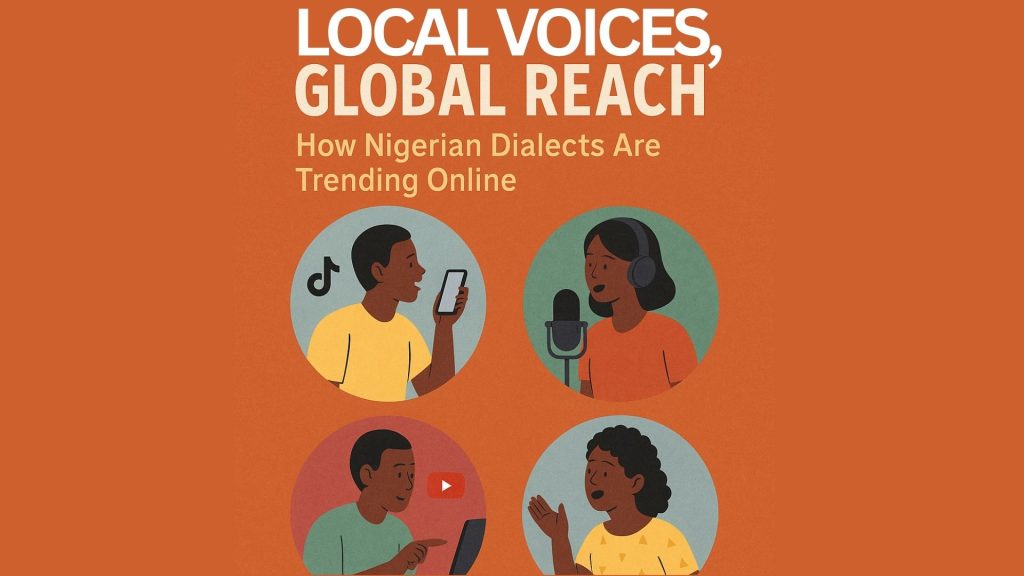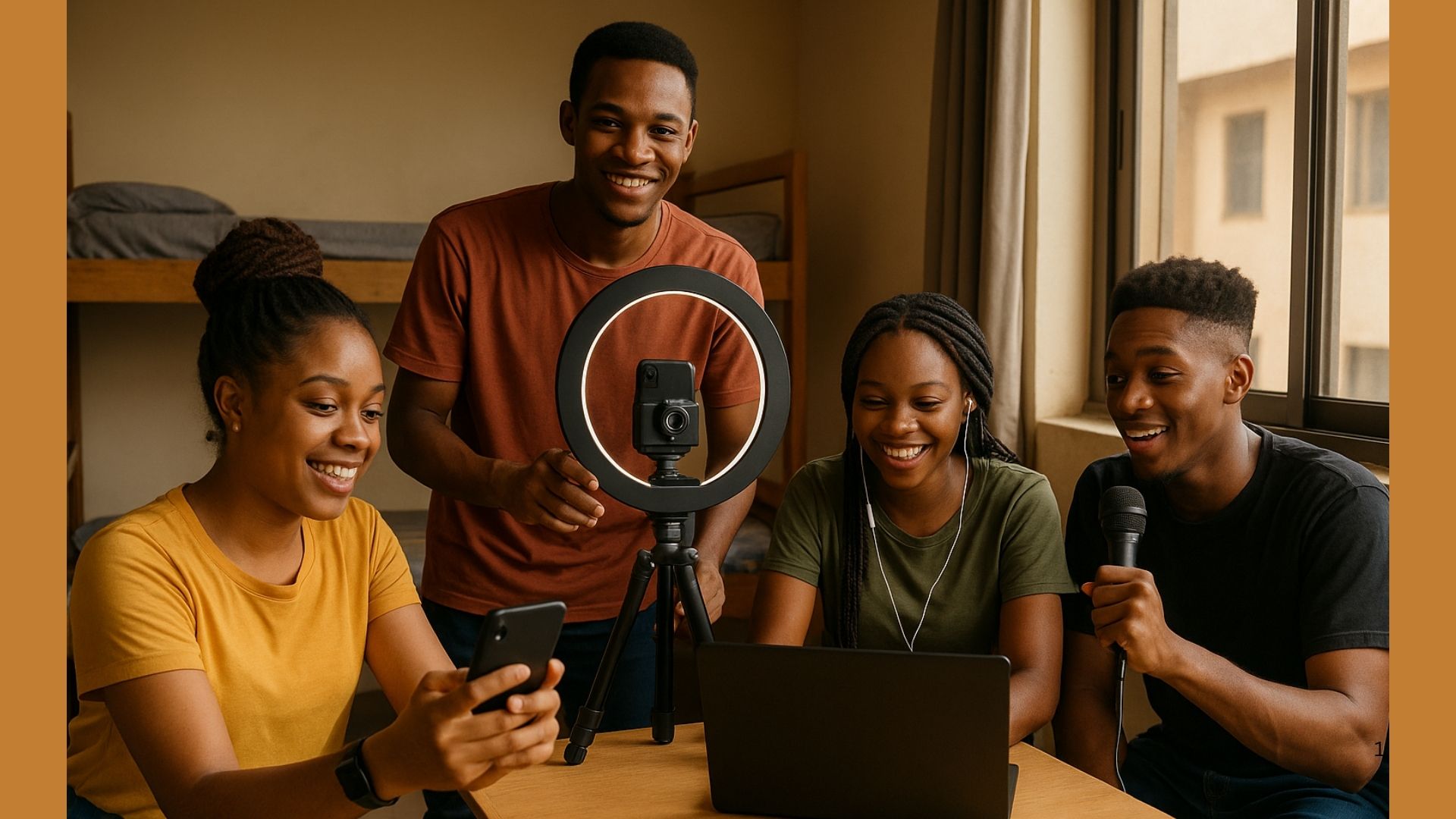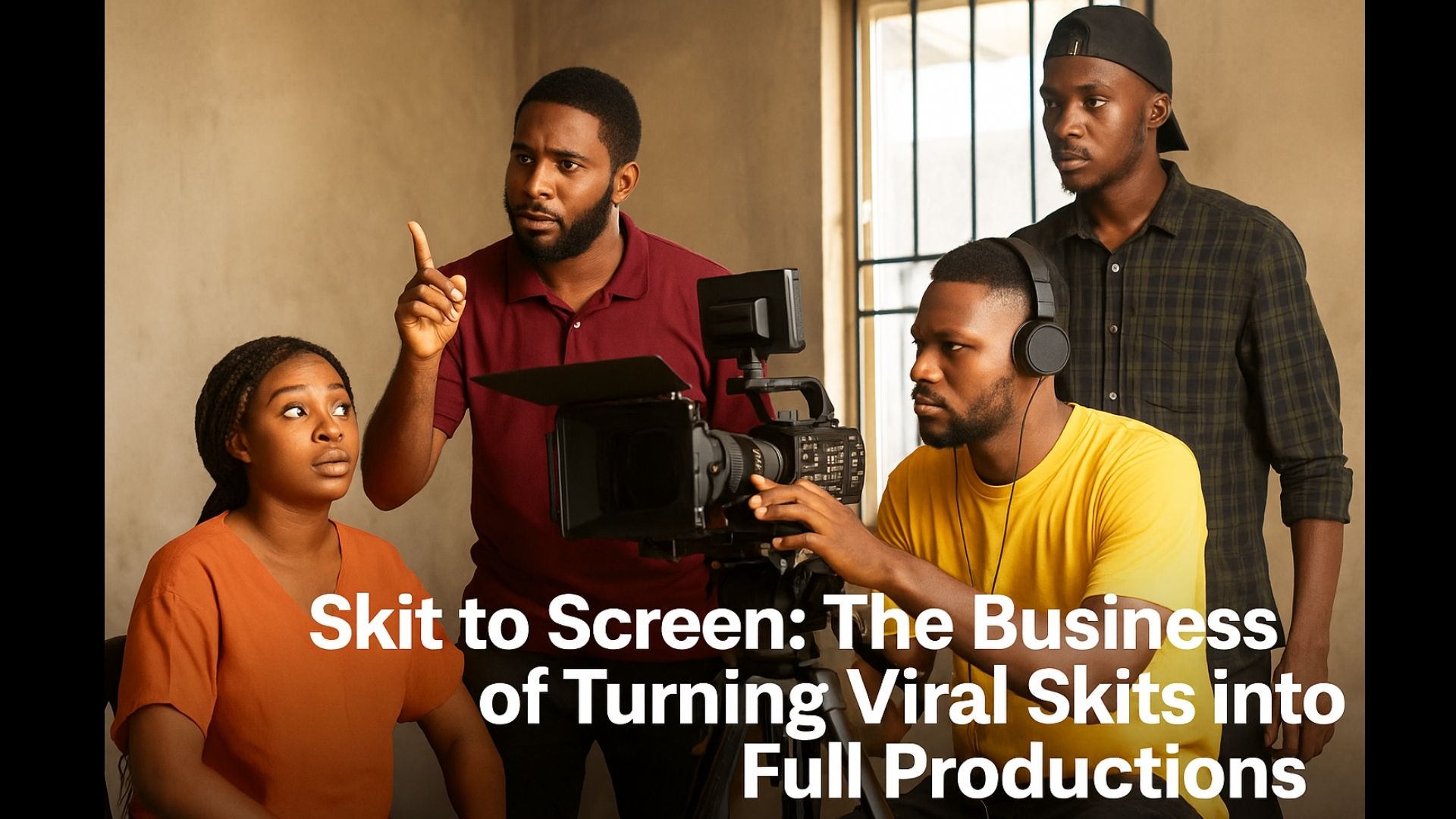Local Voices, Global Reach: How Nigerian Dialects Are Trending Online

In Nigeria’s buzzing digital scene, one of the most surprising stars isn’t a celebrity or influencer, it’s language. From TikTok skits to YouTube tutorials and podcasts, Pidgin, Yoruba, Hausa, Igbo, and even minority dialects are stepping into the global spotlight. What was once considered “local talk” is now part of a cultural wave reaching millions online.
Pidgin: Humor Without Borders
Nigerian Pidgin is leading the charge, thriving in comedy skits that mirror everyday struggles. From Sabinus cracking jokes about Lagos traffic to Taaooma’s campus humor, Pidgin delivers laughs that feel authentic yet universal. Non-Nigerians may not understand every phrase, but the humor still lands. That relatability has made Pidgin the internet’s most exportable local tongue.
Yoruba: Tradition Meets Tutorials
On YouTube, Yoruba content creators are teaching more than just language. Tutorials blend greetings, proverbs, and traditional songs with modern storytelling. Channels showing how to say “Ẹ káàbọ̀” (welcome) or explaining Yoruba folktales attract both diaspora families and curious foreigners. These videos preserve culture while planting Yoruba firmly in the digital mainstream.
Hausa: Podcasts and Politics
Hausa creators are carving out space in audio. From Spotify podcasts that dissect politics to community radio streams now uploaded online, Hausa is giving voice to millions across West Africa and the diaspora. Listeners in London, Toronto, and Chicago tune in to feel connected to home, proving the language’s reach is far from confined to Nigeria’s north.
Igbo: Dance, Drama, and Digital Identity
On TikTok and Instagram, Igbo culture shines through dance videos, humorous reels, and catchy catchphrases. Creators use idioms and chants that instantly go viral, making Igbo not just a language but an identity badge online. From weddings clips to comedic skits, the Igbo digital footprint is growing fast.
Minority Languages: Rising With Pride
Beyond the big four, minority languages like Tiv, Efik, and Kanuri are finding champions on social platforms. Some creators record short TikTok lessons, others remix traditional songs into viral trends. Each post adds to cultural preservation, proving that no Nigerian language is too “small” for the digital age.
Why It Matters
Nigeria is home to over 500 languages, many endangered by urbanization and globalization. By digitizing them through memes, music, skits, and tutorials, young Nigerians are ensuring survival and global visibility. And as brands chase authenticity, creators speaking in local dialects are landing partnerships that once seemed impossible.
Final Thoughts
What started as fun skits and side projects has become cultural diplomacy in action. By taking Pidgin, Yoruba, Hausa, Igbo, and minority languages global, Nigerian youth are showing the world that local voices don’t just survive online, they thrive.
At OtownGist Media, we believe this trend proves something powerful: the internet doesn’t erase identity, it amplifies it. Nigeria’s dialects aren’t just local chatter anymore, they’re global culture!
Article by Ezegbogu Princewill (Intern @ OtownGist Media & Creative Hub)



